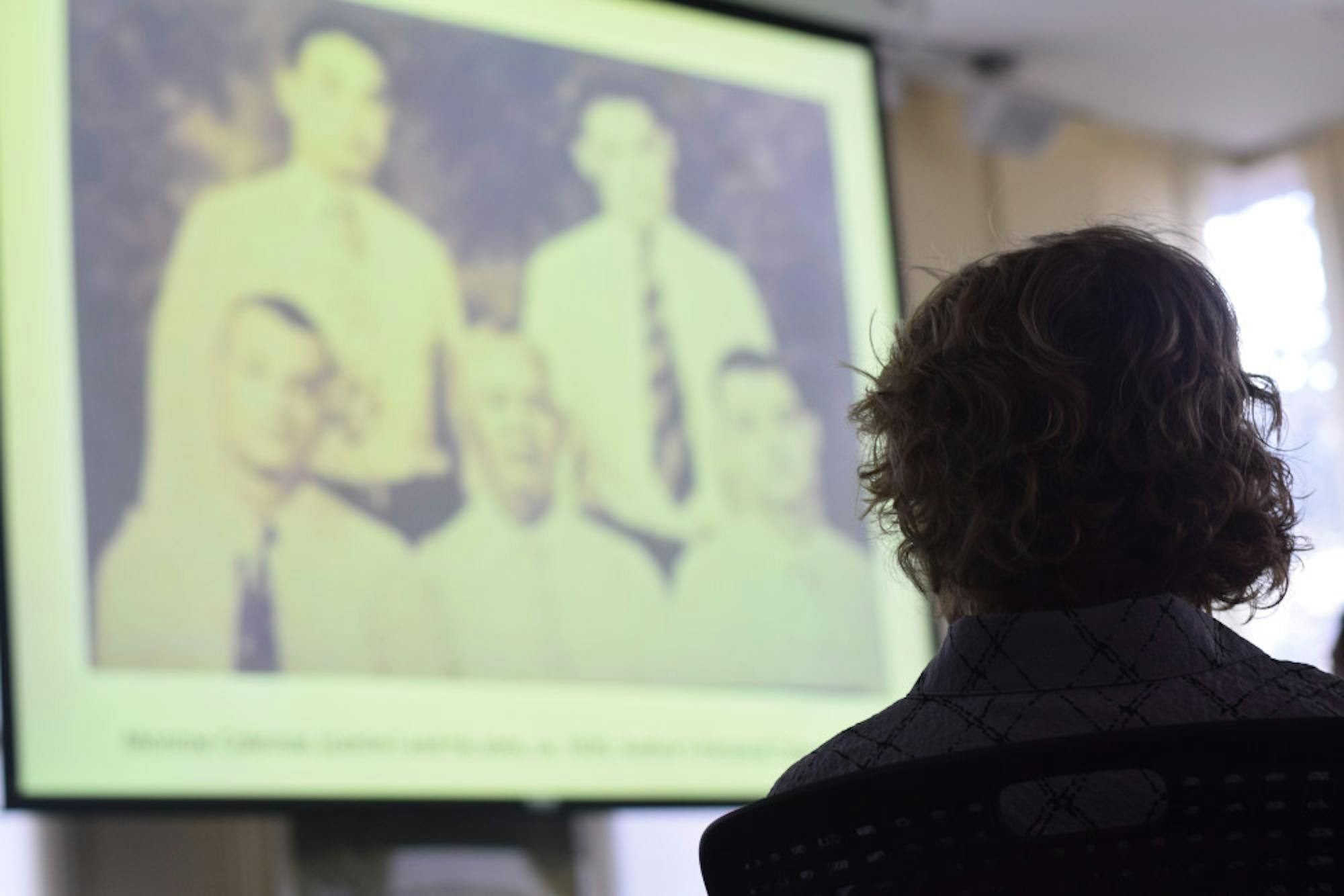The Program for Public Humanities at Jonathan M. Tisch College for Civic Life sponsored a panel on “Public Amnesias” yesterday afternoon to discuss dynamic omissions in the narratives of experiences.
The event, moderated by Diana O'Donoghue, director of the Program for Public Humanities, featured four panelists: Kendra Field, assistant professor of history and Africana studies; Kerri Greenidge, professor and co-director of the African American Freedom Trail Project; Aditi Mehta, a recent graduate of MIT with a Ph.D. in Urban Studies and Planning; and James Rice, Walter S. Dickson Professor of English and American history.
The panelists discussed the ramifications of forgetting events and narratives, specifically pertaining to histories of African-descended and indigenous communities and environmental disasters in academic disciplines.
The first panelist, Field, talked about the narratives of what she called “freedom’s first generation,” or children who were born as slaves but grew up during Reconstruction. She went on to recount the deep impact this generation had on communities of Oklahoma, as well the generation's deep multiracial and transnational dimension.
Field explained how the narratives of this generation are often lost.
“The vast swaths of human and North American history has only recently been entered into American history textbooks, let alone public history, public culture and public space," she said.
Field said her research aimed to uncover why some stories from this generation were remembered, while some were not.
Greenidge, the second panelist, explained the history of William Monroe Trotter, an African-American activist in Boston during the early 20th century.
“William Monroe Trotter placed Boston at the center of black American politics and forced an overwhelmingly white city to live up to the most progressive conceptions of itself," Greenidge said.
Greenidge connected Trotter’s influential history to the fact that his narrative is hardly remembered today.
“Inoculation against public amnesia through a reconceptualization of William Monroe Trotter and the role of black Boston in transnational black radicalism disrupts our understanding of African-American political and cultural history," Greenidge said.
Mehta, the third panelist, described public amnesias in the post-disaster context. Mehta talked about the gap between headlines during Hurricane Katrina, which stated that “chaos and rioting” occurred when, in reality, the situation was the opposite.
“Sociological research indicates that in a crisis, conflicts within communities are often forgotten but instead people, who may know one another or not, collaborate under extreme stress,” Mehta said.
Mehta also spoke about the importance of narratives and public memory in rebuilding after a disaster.
“Who decides what will be rebuilt where, and which voices carry forward and dominate the narrative?” Mehta asked.
Rice, the final panelist, first talked about public amnesia as planned forgetting. Rice used Stratford Hall, the birthplace of Robert E. Lee, as an example.
“Members of the surrounding communities were not coming to Stratford Hall," Rice explained. "White folks didn’t feel connected with these plantation owners, and black folks who were descendants of people who had been enslaved at Stratford Hall, weren’t crossing the street."
Rice further elaborated on why the public lost interest in Stratford Hall.
“It was failure of Stratford Hall to recognize the promise and profound disappointment with the end of reconstruction," he said. "It failed to recognize Jim Crow and the existing structural inequalities to this day.”
Field emphasized the idea that narratives can be chosen to be advanced through history, or not.
“The experience of public amnesias is perhaps especially true for those who have endured unsung histories of social movement and resistance,” Field said.
Tisch College hosts panel on public amnesias

A woman attentively watches a presentation about Public Amnesia at Tisch College on Feb 21, 2018.





